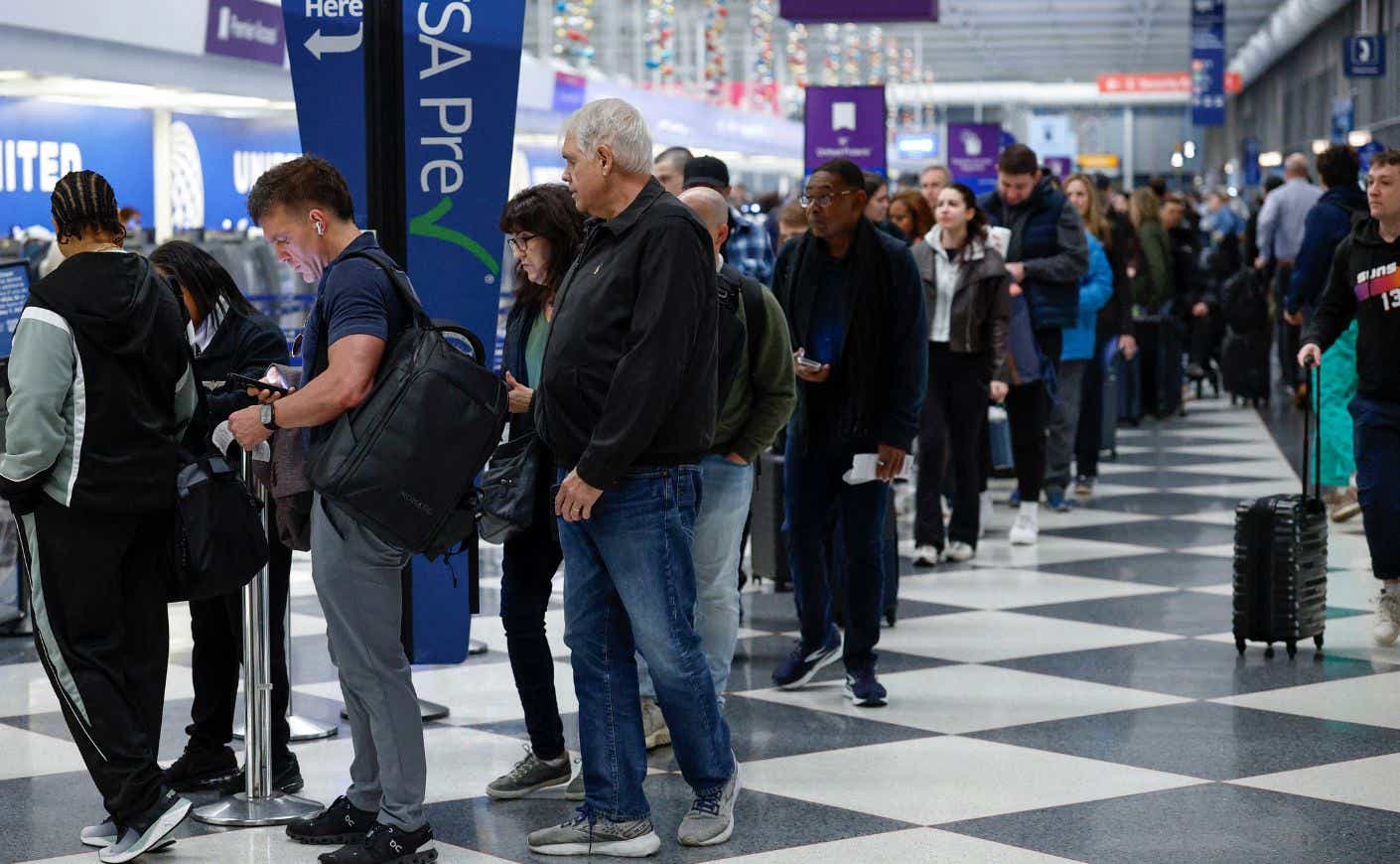If you felt like the chaos of the government shutdown spilled into every corner of life this weekend, you’re not alone. Families relying on food assistance saw their benefits thrown into limbo yet again. Travelers faced mounting delays and cancellations as the Federal Aviation Administration (FAA) scaled back flights amid staffing shortages.
Then, late Sunday, Congress finally made a breakthrough that could end what has become the longest stalemate in history. Senate Democrats sided with Republicans in a 60-40 vote that marks the first step toward ending the shutdown.
Here's where things stand, and what may come next.
Food assistance stuck in limbo — again
Over the weekend, the Trump administration told states to stop sending out full food assistance benefits for November, putting 42 million low-income Americans at risk of losing support.
A Saturday memo from the Agriculture Department’s Food and Nutrition Service instructed states to “immediately undo any steps” toward issuing full Supplemental Nutrition Assistance Program (SNAP) payments.
SNAP, which is administered by states but funded with federal dollars, has already faced major disruptions during the ongoing government shutdown. On Friday, a federal judge ordered the Trump administration to release full November benefits by the end of the day. The administration initially signaled it would comply, even as it appealed the ruling to the Supreme Court. Later that same day, Justice Ketanji Brown Jackson temporarily paused the lower courts order, even after at least nine states, including Michigan, had already started issuing this month’s benefits.
Essentially, states must now have to revert to the partial payments the Trump administration previously ordered. For millions of families, that means even more uncertainty just as they’re trying to plan for the month ahead.
Brace yourself: Thanksgiving flights could be a mess
The misery for travelers just isn’t letting up. As of Sunday afternoon, FlightAware.com reported more than 18,000 delays and over 2,000 cancellations. Chicago O’Hare logged more than 600 delays alone, while Atlanta’s Hartsfield-Jackson saw more than 320 cancellations.
Many of these headaches stem from the FAA’s mandate to reduce air traffic — cuts that began Friday at 40 major airports, including the New York area and Washington, D.C. The reductions will ramp up quickly, increasing from 4 percent to 6 percent by Nov. 11 and reaching as high as 10 percent by Nov. 14. Officials say the cuts are needed to keep the skies safe amid ongoing air traffic control staffing shortages.
Transportation Secretary Sean Duffy warned the situation will only get worse. In the weeks leading up to Thanksgiving, he said air travel will be “reduced to a trickle,” meaning many families may not be able to gather for the holiday unless lawmakers resolve the budget standoff. And even if the government reopened tomorrow, he noted, it would take time for controllers to return to work and restore normal operations.
But the ripple effects go beyond missed reunions. National Economic Council Director Kevin Hassett warned Sunday that reduced holiday travel could drag down the economy. “Thanksgiving time is one of the hottest times of the year for the economy,” he said on CBS’ Face the Nation. “If people aren’t traveling at that moment, then we really could be looking at a negative quarter for the fourth quarter.”
A potential breakthrough?
Late Sunday, a critical bloc of eight centrist Senate Democrats broke their party's blockade to vote with Republicans to advance a funding deal to reopen the government.
The plan combines a short-term measure to extend government funding until January with three long-term appropriations bills. These would fund the Department of Agriculture and the FDA, the Department of Veterans Affairs and military construction projects, and the operations of Congress. According to CNN, that includes $203.5 million in new funding to enhance security measures and protection for members of Congress in addition to $852 million for Capitol Police.
The agreement would also reverse President Trump’s firings of federal workers, and guarantee full SNAP funding through September 2026.
One major Democratic priority missing from the measure is an extension of enhanced Affordable Care Act subsidies. The agreement would, however, guarantee a Senate vote on that issue that could happen as soon as next month.
It’s still unclear when the votes will actually take place, with final negotiations happening behind closed doors. Senate Majority Leader John Thune has suggested the first vote could come as soon as Sunday or Monday. “We’ll see kind of where the votes are,” he said. “This kind of stuff can drag on indefinitely if you allow it to.”
Even if the bill clears the Senate, it still has to return to the House for final passage before heading to Trump’s desk to reopen the government — a process that could take several more days.









